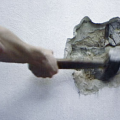This as-told-to story is based on a conversation with Zach Downey, owner and CEO at Distinctive Vending, which operates cotton candy machines in high-traffic locations such as resorts and amusement parks.
As a college student at James Madison University, Downey was approved to put a pizza vending machine on campus when a funding issue derailed the plan. That’s when he “discovered the world of cotton candy vending machines.” Downey got into the business, and now Distinctive Vending is on track for $500,000 in revenue in 2024.
Image Credit: Courtesy of Distinctive Vending. Zach Downey.
Read on to learn what goes into building a successful cotton candy vending machine business — and how you can use it for passive income.
I didn’t know how many people were interested in starting this type of side hustle. I still receive calls from people asking about the specifics.
There are three main things that go into running a cotton candy vending machine business.
Decide on a location for the vending machine before you purchase it
First, I’ve talked to people who didn’t find the location for their machines before committing to the business. They just buy machines, and that’s not the smartest way to do it. Buying the machine first increases your risk. So, deciding on the location for your machine should be the very first step. In my experience, the best way to find a location is to go in person to the location you want and try to talk with the person in charge — that has the greatest chance of success. If you don’t want to do that, you can cold call and email; paid advertising doesn’t work too well.
Once you have your location, it’s time to purchase the machine — and it’s the No. 1 thing people usually ask about.
Related: Passive Income 101: A Beginner’s Guide to Building Wealth on Autopilot
How to buy a cotton candy vending machine — and avoid unexpected charges
I made a major mistake when I purchased my first machine. It had the wrong Incoterms, which determines how your package is shipped. If you order something from Amazon, it’s shipped right to your door. But when you’re ordering something from China, there are multiple ways to ship it; the main difference is when you take responsibility for the package. When we first shipped it, it was Free Carrier (FCA), which means we took control of the package when it reached our port. So we were responsible for paying import tax, getting it from the port to the end location, and that was an extra $3,000 we had no idea we would pay. So it’s important to ship Delivered Duty Paid (DDP).
When sourcing a machine, if you look for one online, even a quick Google search, you’ll get 20 different websites. If you go on Alibaba, the main source for Chinese manufacturers, and look up cotton candy vending machines, you will find essentially 50 different suppliers all listing cotton candy vending machines. Now the thing is, there aren’t actually people who are manufacturing 50 different types of vending machines.
In the market, there are basically five real cotton candy vending machine manufacturers, and everybody else is essentially just taking those machines, charging more for them and flipping cotton candy vending machines. Out of those five real manufacturers, there are basically two good ones. So unless you know who those five are and who the two good ones, you’re screwed. It’s like a game of chance, and you’re just picking randomly.
Of the five manufacturers, I recommend purchasing your machine from Red Rabbit or Sunzee Intelligent.
How to clean and restock the cotton candy vending machine, plus the importance of extra parts
The work doesn’t stop after your machine is set up in its location: You must be diligent about maintaining it.
The machine gets dirty very fast. In my opinion, you’re being negligent if you’re not cleaning after 100 servings maximum. The machine doesn’t technically have to be refilled until about 150 servings, and then you need to empty the waste water bucket. You should stick to a regular cleaning schedule; clean inside the cabinet to prevent sugar buildup and ensure the cotton candy stays fresh and particle-free. Wipe down the machine’s windows, too, to maintain visual appeal. Deep cleaning tasks, including cleaning the burner cover plate and furnace cover head, don’t need to be done every time the machine is cleaned but should be done bi-weekly or weekly.
Be sure to stock extra materials, like sugar and cotton candy sticks, to replenish the machine as needed, typically after about 300 servings.
You should also have extra parts for the machine on hand. Inevitably, the machine will break down, and it’s easier to have additional parts ready than to wait one to two weeks to receive them from China. Some basic recommendations include a replacement furnace, water pump and sugar motors.
Related: This 20-Year-Old Student Started a Side Hustle With $400 — and It Earned $150,000 Over the Summer
What the investment of time and money looks like
If you do it right, you can get a machine to your door for $7,500. On top of that, you’ll probably bulk order supplies, too, which will cost about $500. But you can start this for under $10,000, no question. And then, as far as ongoing monthly expenses, depending on the location, most of them will want you to have general liability insurance. It depends on the policy, but expect it to cost anywhere from $100 to $150 monthly.
This business can be entirely passive if you’re not the one cleaning and restocking the machines. We hire people to clean the machines, and most locations get cleaned one to three times a week. We pay about $50 a visit. So $50, if you’re restocking every 100 units, that’s $1,000 in revenue for $50 in cleaning expenses, which is like 5% in revenue just to have the machine clean. That’s nothing — that is an amazingly good margin. Your cost of goods is 30 cents. You can sell for as high as $15. There’s basically no other business where you can buy something for 30 cents and sell it for $10. Almost no other business. It’s crazy. So, as long as you’re outsourcing the cleaning part, you can make it completely passive.
This business is for people who don’t mind working with machines because a part will break sooner or later. That’s just how machines are. And if you’re uncomfortable with going to the machine and fixing it yourself, I don’t think you should do it. If you’re not comfortable with at least learning how, you should not start in the first place. When I started, I thought I could just plug the machine in, let it go, visit it once a month, and it’d be fine. But that is not even close to how it is.




